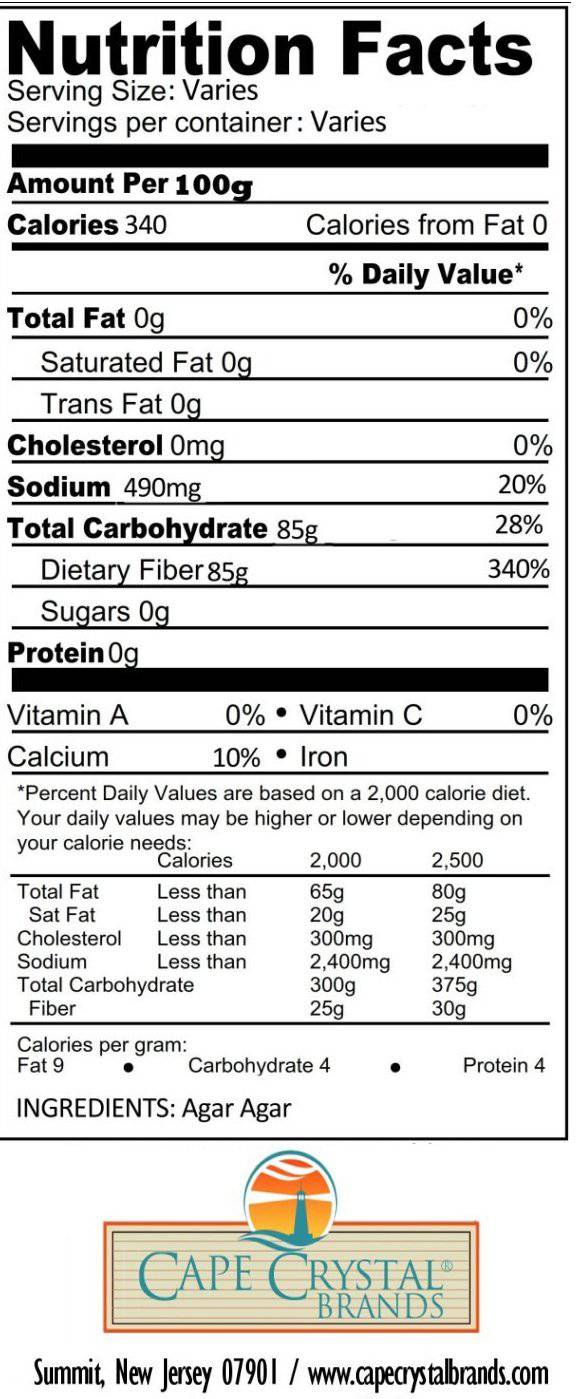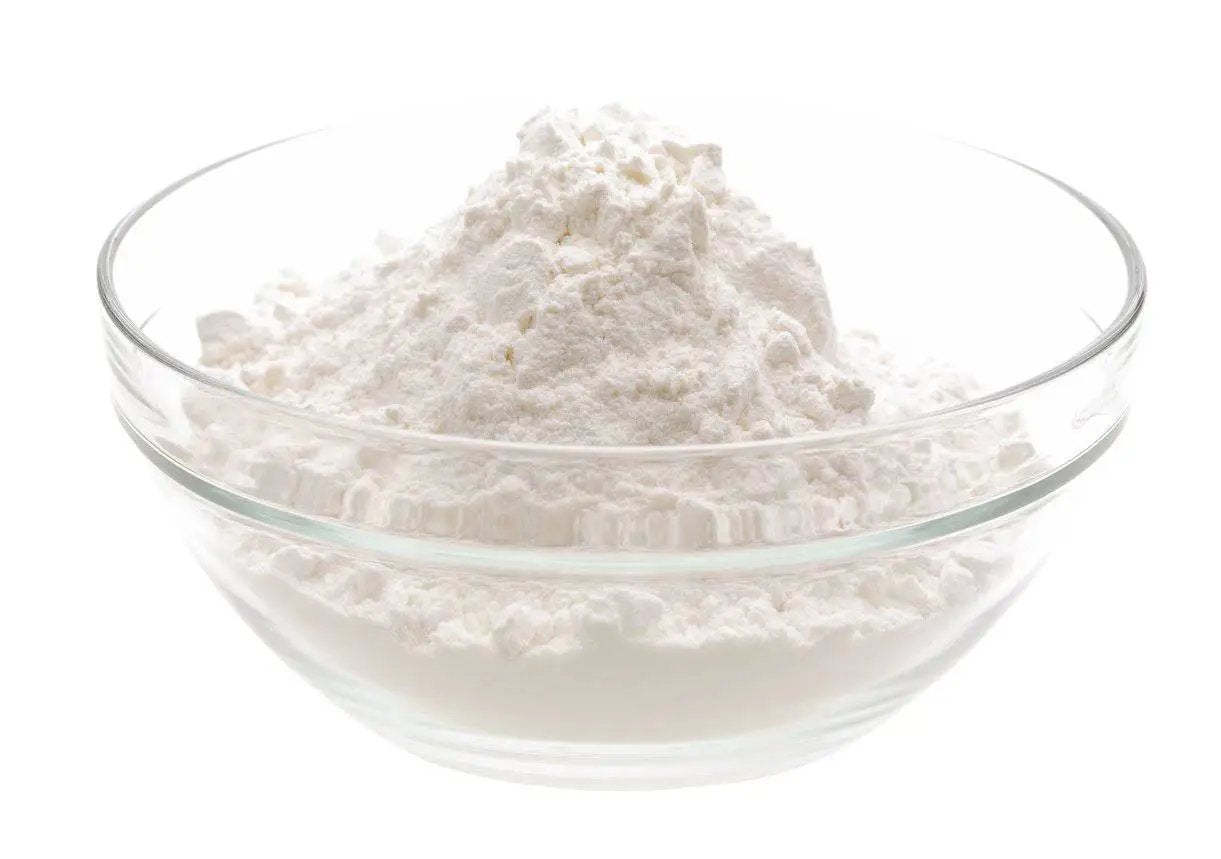
Neuro-Nutrition: How Diet Influences Brain Health and Cognitive Function
SUBSCRIBE TO OUR BLOG
Promotions, new products, and recipes.
Neuro-Nutrition is a fascinating field of study that explores the impact of diet on brain health and cognitive function. It delves into the relationship between the food we eat and our mental performance, highlighting the importance of nourishing our brains with essential nutrients and neuroprotective foods. Research has revealed the significant role that omega-3 fatty acids, antioxidants, and a Mediterranean diet play in promoting optimal brain function and supporting cognitive well-being.
Key Takeaways:
- Neuro-Nutrition focuses on how diet influences brain health and cognitive function.
- Omega-3 fatty acids and antioxidants are essential nutrients for optimal brain function.
- The Mediterranean diet, rich in neuroprotective foods, supports mental performance and reduces the risk of cognitive decline.
- A balanced and nutritious diet is crucial for promoting brain health and supporting cognitive function.
- Understanding the role of nutrition in brain health empowers individuals to make informed choices for optimal neurological wellness.
The Role of Omega-3 Fatty Acids in Cognitive Function
Omega-3 fatty acids, specifically docosahexaenoic acid (DHA) and eicosapentaenoic acid (EPA), play a crucial role in maintaining brain health and supporting cognitive function. These essential fatty acids have been extensively studied for their beneficial effects on memory enhancement, neurogenesis (the growth of new neurons in the brain), and overall cognitive performance.
Research has shown that consuming foods rich in omega-3 fatty acids can have a significant impact on brain health. Fatty fish, such as salmon and mackerel, along with walnuts, chia seeds, and flaxseeds, are excellent sources of these essential nutrients. Incorporating these foods into your diet can provide the brain with the necessary building blocks for optimal cognitive function.
Omega-3 fatty acids have been found to support memory and learning by enhancing synaptic plasticity, the ability of neurons to form and strengthen connections. They also play a crucial role in neurogenesis, promoting the growth of new neurons in regions of the brain involved in memory and cognitive function.
Furthermore, omega-3 fatty acids have been shown to reduce neuroinflammation and oxidative stress in the brain, both of which are associated with cognitive decline. By reducing inflammation and protecting brain cells from damage, these fatty acids contribute to overall brain health and cognitive well-being.
| Food Sources | Omega-3 Fatty Acid Content (per serving) |
|---|---|
| Fatty Fish (salmon, mackerel, sardines) | 1000-2000 mg |
| Walnuts (1/4 cup) | 2000 mg |
| Chia Seeds (1 ounce) | 4800 mg |
| Flaxseeds (1 tablespoon) | 2300 mg |
The Impact of Antioxidants on Cognitive Decline
Antioxidants play a crucial role in protecting the brain from oxidative stress and inflammation, which are key contributors to cognitive decline. Research has shown that incorporating antioxidant-rich foods into your diet can help reduce the risk of neuroinflammation and support brain health.
Antioxidants are found abundantly in fruits, vegetables, and nuts. These brain-boosting nutrients help neutralize harmful free radicals and reduce the damaging effects of oxidative stress on the brain.
Did you know? A study published in the Journal of Alzheimer's Disease found that individuals who consumed high amounts of antioxidant-rich foods had a reduced risk of cognitive decline compared to those with a low intake.
Here are some antioxidant-rich foods that you can incorporate into your diet:
- Berries: Blueberries, strawberries, and raspberries are all packed with antioxidants and have been shown to enhance brain health.
- Leafy greens: Spinach, kale, and Swiss chard are excellent sources of antioxidants, as well as brain-boosting nutrients like vitamin K and folate.
- Nuts: Almonds, walnuts, and pistachios are not only rich in antioxidants but also provide healthy fats that support brain function.
- Dark chocolate: Enjoying a small piece of dark chocolate in moderation can provide you with antioxidants called flavonoids, which have been linked to improved cognitive function.
By consuming a variety of antioxidant-rich foods, you can provide your brain with the necessary nutrients to function optimally and potentially slow down the progression of cognitive decline.
| Foods | Antioxidant Content |
|---|---|
| Blueberries | High |
| Kale | High |
| Spinach | High |
| Almonds | Moderate |
| Dark chocolate | Moderate |
The Benefits of the Mediterranean Diet for Brain Health
The Mediterranean diet is renowned for its positive impact on overall health, particularly when it comes to brain health and cognitive function. This diet, popular in Mediterranean countries like Greece and Italy, is characterized by a high consumption of fruits, vegetables, whole grains, fish, and olive oil.
One of the key reasons the Mediterranean diet is beneficial for brain health is its rich content of antioxidants, including flavonoids. These natural compounds help protect brain cells from damage caused by harmful free radicals and play a role in reducing inflammation, which is associated with cognitive decline.
In addition to antioxidants, the Mediterranean diet is abundant in polyunsaturated fats, which are essential for brain health. These healthy fats, found in fatty fish like salmon, nuts, and seeds, provide important nutrients that support cognitive function and promote overall brain health.
Studies have shown that following a Mediterranean-style diet can have numerous benefits for the brain, including:
- Reduced risk of neurodegenerative diseases such as Alzheimer's and Parkinson's
- Improved memory and cognitive function
- Enhanced mood and mental well-being
- Protection against age-related cognitive decline
This dietary pattern is not only delicious but also offers a variety of nutrients that support brain health and cognitive function. By following the Mediterranean diet, individuals can enjoy a wide range of nutritious foods while promoting long-term cognitive wellness.
| Key Components of the Mediterranean Diet | Benefits for Brain Health |
|---|---|
| Fruits and Vegetables | High in antioxidants, vitamins, and minerals that protect brain cells |
| Whole Grains | Provide steady energy to the brain and support overall cognitive function |
| Fatty Fish | Rich in omega-3 fatty acids, which promote brain health and improve cognitive function |
| Olive Oil | Contains polyphenols and monounsaturated fats that protect against age-related cognitive decline |
| Nuts and Seeds | Supply essential nutrients, including polyunsaturated fats and antioxidants, that support brain health |
| Herbs and Spices | Anti-inflammatory properties that benefit brain health and cognitive function |
By embracing the Mediterranean diet, individuals can nourish their brain with a wide range of nutrients and enjoy a delicious and culturally rich eating pattern. Incorporating the key components of this diet, such as fruits, vegetables, whole grains, fatty fish, olive oil, nuts, seeds, and herbs and spices, can have a significant positive impact on brain health and cognitive function.
Exploring the Gut-Brain Axis Through Diet
The gut-brain axis is a bidirectional communication system between the gut and the brain that plays a crucial role in mood and cognition. Research in the field of nutritional psychiatry has revealed that the foods we eat and the composition of our gut microbiota can greatly influence our mental health and overall well-being.
A healthy diet, particularly one that emphasizes plant-based foods, can have a positive impact on the gut-brain axis and promote mental clarity. Plant-based diets are rich in fiber and phytonutrients, which provide vital nourishment for the gut microbiota. These diets also tend to be low in processed foods and saturated fats, which can negatively affect gut health.
Practicing mindful eating is another important aspect of supporting the gut-brain axis. Being aware of the connection between food and mood allows us to make conscious choices that nourish both our bodies and minds. Mindful eating involves paying attention to the flavors, textures, and sensations of food, as well as recognizing how different foods make us feel mentally and emotionally.
The Benefits of Plant-Based Diets for the Gut-Brain Axis
Plant-based diets consist primarily of fruits, vegetables, whole grains, legumes, nuts, and seeds. These foods are not only rich in fiber and phytonutrients but also provide an abundance of vitamins, minerals, and antioxidants that support gut health and overall brain function.
In addition, plant-based diets are typically low in processed foods and saturated fats, which can negatively impact the gut microbiota. By avoiding these harmful substances and focusing on whole, unprocessed plant foods, individuals can help establish a healthy balance of gut bacteria that promotes optimal mental well-being.
A plant-based diet can also help reduce inflammation in the body, including the brain. Chronic inflammation has been linked to various mental health conditions, such as depression and anxiety. By reducing inflammation, plant-based diets create an environment in the body that supports optimal brain function and mental clarity.
Mindful Eating and its Impact on Cognitive Function
Mindful eating goes beyond simply choosing healthy foods; it involves cultivating a deeper relationship with our food and the act of eating itself. By slowing down and savoring each bite, we can fully appreciate the flavors and textures of our meals while also becoming more attuned to how certain foods make us feel.
When we practice mindful eating, we give ourselves the opportunity to notice any physical or emotional changes that occur as a result of our food choices. This heightened awareness allows us to make conscious decisions about what we eat and how it affects our cognitive function and overall well-being.
Research has shown that mindful eating can lead to a healthier relationship with food and a greater sense of satisfaction after meals. By paying attention to our body's cues of hunger and fullness, we can avoid overeating and better support our gut-brain axis.
Plant-Based Foods for a Healthy Gut-Brain Axis
| Category | Examples |
|---|---|
| Fruits | Berries, citrus fruits, apples, bananas |
| Vegetables | Leafy greens, broccoli, cauliflower, bell peppers |
| Whole Grains | Quinoa, brown rice, oats, whole wheat bread |
| Legumes | Beans, lentils, chickpeas, tofu |
| Nuts and Seeds | Almonds, walnuts, chia seeds, flaxseeds |
A plant-based diet and mindful eating can work in tandem to support the gut-brain axis and promote optimal cognitive function. By nourishing our bodies with fiber-rich plant foods and being mindful of the connection between food and mood, we can cultivate a healthier gut microbiota, reduce inflammation, and enhance mental clarity. Taking care of our gut-brain axis through diet is a proactive step toward maintaining overall brain health and well-being.
The Significance of B-Vitamins in Cognitive Health
B-vitamins are essential nutrients that play a crucial role in cognitive health. Specifically, folate, vitamin B6, and vitamin B12 are involved in important brain functions, including the synthesis of neurotransmitters and the maintenance of overall brain function. Research has shown that adequate intake of B-vitamins is associated with improved cognitive function and memory enhancement.
To support optimal cognitive health, it is important to include dietary sources of B-vitamins in your daily meals. Here are some examples:
- Leafy greens, such as spinach and kale, are rich in folate, which supports the production of red blood cells and aids in cognitive development.
- Whole grains, like brown rice and whole wheat bread, contain vitamin B6, which helps in the production of neurotransmitters that regulate mood and cognitive function.
- Lean meats, such as chicken and turkey, are excellent sources of vitamin B12, which plays a vital role in the maintenance of nerve cells and the production of DNA.
By incorporating these B-vitamin-rich foods into your diet, you can provide your brain with the necessary nutrients to support optimal cognitive function and enhance memory. It is important to note that while a well-balanced diet is beneficial for cognitive health, it is always recommended to consult with a healthcare professional or registered dietitian for personalized advice based on your specific nutritional needs.
| Vitamin | Food Sources |
|---|---|
| Folate | Leafy greens (spinach, kale), legumes (lentils, chickpeas), citrus fruits (oranges, lemons) |
| Vitamin B6 | Whole grains (brown rice, whole wheat), fish (tuna, salmon), bananas |
| Vitamin B12 | Lean meats (chicken, turkey), fish (salmon, trout), dairy products (milk, cheese) |
The Role of Polyunsaturated Fats in Neurogenesis
Polyunsaturated fats, particularly omega-3 and omega-6 fatty acids, play a crucial role in neurogenesis, the growth of new neurons in the brain. These fats are essential for supporting the development and maintenance of brain cells, contributing to overall brain health and cognitive function.
Consuming foods that are rich in polyunsaturated fats can provide the brain with the necessary building blocks for optimal neurogenesis and cognitive function. Fatty fish, such as salmon and mackerel, are excellent sources of omega-3 fatty acids. Nuts, such as walnuts and almonds, and seeds, like flaxseeds and chia seeds, are also high in polyunsaturated fats.
Studies have shown that a diet rich in polyunsaturated fats can improve brain health and enhance cognitive function. These fats contribute to the structural integrity of brain cells, support communication between neurons, and promote the formation of new connections in the brain.
Neurogenesis is particularly important for cognitive processes such as learning, memory, and problem-solving. By incorporating polyunsaturated fats into your diet, you can support the growth of new neurons in the brain and promote optimal cognitive function.
The Benefits of Polyunsaturated Fats for Brain Health
- Enhanced cognitive function: Polyunsaturated fats have been associated with improved memory, attention, and problem-solving skills.
- Reduced risk of cognitive decline: A diet rich in these fats may help protect against age-related cognitive decline and neurodegenerative diseases.
- Support for brain development: Polyunsaturated fats are particularly important during pregnancy and early childhood, as they contribute to healthy brain development in infants and young children.
- Anti-inflammatory properties: These fats help reduce inflammation in the brain, which can contribute to enhanced brain health and reduced risk of neurological disorders.
By incorporating polyunsaturated fats into your diet, you can support neurogenesis, promote optimal brain health, and enhance cognitive function. Including a variety of sources such as fatty fish, nuts, and seeds can provide the necessary nutrients for maintaining a healthy brain.

Dietary Approaches to Slow Down Neurodegenerative Diseases
Nutrition plays a critical role in the prevention and management of neurodegenerative diseases, such as Alzheimer's and dementia. To support brain health and slow down the progression of these diseases, adopting certain dietary approaches can be beneficial. Two effective dietary approaches include:
Mediterranean-Style Diet
A Mediterranean-style diet emphasizes consuming a variety of whole foods, including fruits, vegetables, whole grains, lean proteins, and healthy fats. This type of diet is rich in brain-boosting nutrients such as omega-3 fatty acids and antioxidants.
Omega-3 fatty acids, found in fatty fish like salmon and sardines, walnuts, and flaxseeds, have been shown to support brain health and reduce the risk of neurodegenerative diseases. Antioxidants, which are abundant in colorful fruits and vegetables like berries, spinach, and kale, help protect the brain from oxidative stress and inflammation.
A Mediterranean-style diet also includes moderate consumption of red wine, which contains resveratrol, a compound that has been associated with improved cognitive function.
Specific Nutrients
Incorporating specific nutrients into your diet can provide additional support for cognitive wellness. Omega-3 fatty acids, as mentioned earlier, play a significant role in brain health. Other key nutrients to focus on include:
- Vitamin E: Found in nuts, seeds, and vegetable oils, vitamin E has antioxidant properties and may help reduce the risk of cognitive decline.
- Vitamin B12: Important for brain function, vitamin B12 is primarily found in animal-based foods such as meat, fish, and dairy products.
- Curcumin: The active compound in turmeric, curcumin has anti-inflammatory and antioxidant effects that may benefit brain health. It can be incorporated into dishes and consumed as a spice.
By adopting a diet rich in brain-boosting nutrients and practicing mindful eating, you can contribute to long-term cognitive wellness and potentially slow down the progression of neurodegenerative diseases.
Comparison of Mediterranean-Style Diet and Specific Nutrients
| Approach | Key Features | Beneficial Nutrients |
|---|---|---|
| Mediterranean-Style Diet | Emphasizes whole foods, lean proteins, healthy fats, and moderate red wine consumption |
|
| Specific Nutrients | Incorporates nutrients with proven benefits for brain health |
|
By following dietary approaches that prioritize brain-boosting nutrients, you can contribute to the maintenance of cognitive function and promote long-term cognitive wellness. It's important to consult with a healthcare professional or registered dietitian to develop a personalized dietary plan based on your specific needs and health conditions.
The Role of the Ketogenic Diet in Cognitive Function
The ketogenic diet, known for its high healthy fat, moderate protein, and low carbohydrate content, has garnered attention for its potential influence on cognitive function. This dietary approach aims to promote the production of ketones, which serve as an alternative energy source for the brain. Research suggests that the ketogenic diet may have positive effects on cognitive function, particularly in conditions such as epilepsy and neurodegenerative diseases. However, more studies are necessary to fully comprehend the long-term impact of this diet on cognitive health.
The Science behind the Ketogenic Diet and Cognitive Function
The ketogenic diet works by inducing a state of ketosis, in which the body primarily utilizes ketones generated from fat metabolism as its main source of energy instead of carbohydrates. This metabolic shift is believed to have various neurological benefits.
One hypothesis is that ketones, such as beta-hydroxybutyrate (BHB), provide a more efficient and stable energy source to the brain compared to glucose. This may enhance cognitive function by improving neuronal signaling and reducing oxidative stress.
In addition, the ketogenic diet has been found to possess anti-inflammatory properties that may protect the brain from neurodegenerative processes. By reducing inflammation and oxidative stress, the diet may contribute to enhanced cognitive health.
Current Research on the Ketogenic Diet and Cognitive Function
While preliminary evidence suggests a potential link between the ketogenic diet and improved cognitive function, further research is needed to establish the long-term effects and underlying mechanisms.
A study published in the journal Neurobiology of Aging indicated that a ketogenic diet rich in medium-chain triglycerides (MCTs) improved cognitive performance in older adults with age-related memory decline. However, larger and more rigorous studies are necessary to validate these findings.
Another study published in Frontiers in Aging Neuroscience suggested that the ketogenic diet may have neuroprotective effects, potentially slowing down the progression of neurodegenerative diseases such as Alzheimer's disease. However, more research is needed to understand the specific mechanisms involved.
The Ketogenic Diet and Brain Health
The ketogenic diet's impact on brain health extends beyond cognitive function. Research has shown that it may also have therapeutic implications for epilepsy, migraines, and certain psychiatric disorders.
However, it is essential to note that the ketogenic diet is not suitable for everyone. Individuals with specific medical conditions, such as pancreatitis, liver disease, or disorders affecting fat metabolism, should consult a healthcare professional before considering this dietary approach.
| Pros | Cons |
|---|---|
| May improve cognitive function in certain individuals | Restrictive and challenging to adhere to |
| Potential neuroprotective effects | May cause initial side effects such as the "keto flu" |
| May aid in weight loss | Requires careful monitoring of macronutrient intake |
Incorporating the Ketogenic Diet Safely
If you're considering the ketogenic diet for cognitive function or other health reasons, it's crucial to do so under medical supervision. A healthcare professional or registered dietitian can provide personalized guidance and help ensure the diet is nutritionally adequate.
They can also assist in creating a well-balanced meal plan that includes an appropriate variety of healthy fats, quality proteins, and low-carbohydrate vegetables to fulfill essential nutrient requirements.
In conclusion, while research suggests a potential link between the ketogenic diet and cognitive function, more studies are necessary to fully understand the long-term effects and mechanisms involved. If you're interested in pursuing this dietary approach, consult a healthcare professional to determine its suitability for your specific needs and goals.
Exploring Nutritional Psychiatry and Mental Wellness
Nutritional psychiatry is an emerging field that focuses on the relationship between diet and mental wellness. Research has shown that the food we eat can have a profound impact on our mood and overall brain health. Adopting a balanced and nutrient-dense diet, incorporating brain-boosting nutrients, and avoiding processed foods and excessive sugar can support mental wellness and improve cognitive function. Understanding the connection between nutrition and mental well-being is essential for maintaining optimal brain health.
The Link Between Diet and Mood
Many studies have highlighted the link between diet and mood, showing that certain nutrients play a crucial role in brain health and mental well-being. For example, omega-3 fatty acids found in fatty fish, walnuts, and flaxseeds have been associated with a reduced risk of depression and improved cognitive function. Antioxidant-rich foods like berries, dark leafy greens, and dark chocolate have been shown to have mood-boosting properties due to their ability to reduce oxidative stress in the brain.
Brain-Boosting Nutrients for Mental Wellness
Incorporating specific brain-boosting nutrients into your diet can support mental wellness and cognitive function. Here are some key nutrients to focus on:
| Nutrient | Sources |
|---|---|
| Omega-3 fatty acids | Fatty fish (salmon, mackerel, sardines), walnuts, flaxseeds |
| Antioxidants | Berries, dark leafy greens, dark chocolate |
| B-vitamins | Whole grains, leafy greens, lean meats |
| Probiotics | Yogurt, sauerkraut, kimchi |
By including these nutrient-rich foods in your diet, you can support brain health, enhance mood, and improve cognitive function.

The Impact of Processed Foods and Sugar on Mental Wellness
Avoiding processed foods and excessive sugar is also crucial for mental wellness. A diet high in processed foods, such as fast food, sugary snacks, and sodas, has been associated with an increased risk of depression and anxiety. These foods are often devoid of essential nutrients and can contribute to inflammation in the body and brain. Similarly, consuming too much sugar can negatively impact brain health and contribute to mood swings and cognitive decline.
Conclusion
Neuro-nutrition, the study of how diet influences brain health and cognitive function, is a crucial field of research that sheds light on the significant impact of nutrition on our neurological well-being. By prioritizing a balanced and nutrient-dense diet, individuals can actively support optimal brain health and enhance cognitive function throughout their lives.
It is essential to incorporate brain-boosting nutrients, such as omega-3 fatty acids and antioxidants, into our diets. Omega-3 fatty acids, found in fatty fish and walnuts, have been linked to memory enhancement and neurogenesis, the growth of new brain cells. Antioxidants, which are abundant in fruits, vegetables, and nuts, play a vital role in reducing the risk of cognitive decline and neuroinflammation.
Practicing mindful eating and being aware of the gut-brain axis, the bidirectional communication system between the gut and the brain, is also crucial for optimal neurological health. Following a plant-based diet rich in fiber and phytonutrients supports the gut-brain axis and promotes mental clarity, while practicing mindful eating raises awareness of the connection between food and mood.
Understanding the impact of nutrition on brain function empowers individuals to make informed choices and prioritize brain health. By adopting a well-rounded approach to neuro-nutrition, we can support our brain's optimal functioning, enhance cognitive abilities, and promote long-term neurological well-being.
FAQ
What is neuro-nutrition?
Neuro-nutrition is the study of how diet impacts brain health and cognitive function.
How do omega-3 fatty acids affect cognitive function?
Omega-3 fatty acids, specifically DHA and EPA, play a crucial role in memory enhancement, neurogenesis, and overall cognitive function.
What is the role of antioxidants in preventing cognitive decline?
Antioxidants help protect the brain from oxidative stress and neuroinflammation, which are both contributing factors to cognitive decline.
How can the Mediterranean diet benefit brain health?
The Mediterranean diet, rich in neuroprotective foods, such as flavonoids and polyunsaturated fats, has been associated with improved brain health and cognitive function.
How does diet influence the gut-brain axis?
Following a plant-based diet and practicing mindful eating can support the gut-brain axis, which plays a crucial role in mood and cognition.
What is the significance of B-vitamins in maintaining cognitive health?
B-vitamins, including folate, vitamin B6, and vitamin B12, are important for neurotransmitter synthesis and overall brain function, supporting cognitive health.
How do polyunsaturated fats contribute to neurogenesis?
Polyunsaturated fats, such as omega-3 and omega-6 fatty acids, support the growth of new neurons in the brain, promoting neurogenesis and overall brain health.
Can dietary approaches slow down neurodegenerative diseases?
Following specific diets, such as the Mediterranean diet or incorporating specific nutrients, can support brain health and potentially slow down the progression of neurodegenerative diseases.
What is the role of the ketogenic diet in cognitive function?
The ketogenic diet, high in healthy fats and low in carbohydrates, has shown potential benefits in cognitive function, particularly in conditions like epilepsy and neurodegenerative diseases.
How does nutritional psychiatry contribute to mental wellness?
What is the conclusion regarding neuro-nutrition and cognitive function?
By understanding the impact of nutrition on brain function and incorporating brain-boosting nutrients into the diet, individuals can promote optimal neurological health and enhance cognitive function throughout life.
Source Links
- https://www.ncbi.nlm.nih.gov/pmc/articles/PMC2805706/
- https://www.ncbi.nlm.nih.gov/pmc/articles/PMC10083484/
- https://www.nature.com/articles/s41538-017-0008-y
Well That's the Story. I hope it was helpful. Let's Hear Your Thoughts!
We've shared our insights, and now it's your turn! Have an opinion, a question, or a story to share about this article? Dive into the comments below and join the conversation. Your voice is a crucial part of this community, and we're eager to hear what you have to say.
We would appreciate hearing from you. Please add your comments below. We will reply to them.
See: The Hydrocolloid Glossary
For further reading: The Rise of Nutri-Cosmetics: Eating Your Way to Better Skin, Hair, and nails
Elevate Your Culinary Creations! 🍽️✨
Every dish deserves the perfect texture to complement its flavors. Why settle for anything less than perfection? With Cape Crystal Brands Food Texture products, you don't have to. Whether you're crafting velvety sauces, glistening gels, or fluffy mousses, our range ensures you get the consistency you desire every single time.
Don't just cook—create masterpieces. Dive into the world of culinary textures and elevate every meal. Shop now and experience the magic of Cape Crystal!
🛍️ Click Here to Explore Cape Crystal Brands Food Texture Products!

Chef Edmund
Edmund McCormick is the founder of Cape Crystal Brands and EnvironMolds LLC. He is the author of several non-fiction “How-to” books, past publisher of the ArtMolds Journal Magazine, editor of Beginner's Guide to Hydrocolloids, and author of six eBook recipe books available for download on this site. He resides in Far Hill, NJ and lives and breathes his food blogs as both writer and editor. You can follow him on Twitter and Linkedin.
Neuro-Nutrition is a fascinating field of study that explores the impact of diet on brain health and cognitive function. It delves into the relationship between the food we eat and our mental performance, highlighting the importance of nourishing our brains with essential nutrients and neuroprotective foods. Research has revealed the significant role that omega-3 fatty acids, antioxidants, and a Mediterranean diet play in promoting optimal brain function and supporting cognitive well-being.
Key Takeaways:
- Neuro-Nutrition focuses on how diet influences brain health and cognitive function.
- Omega-3 fatty acids and antioxidants are essential nutrients for optimal brain function.
- The Mediterranean diet, rich in neuroprotective foods, supports mental performance and reduces the risk of cognitive decline.
- A balanced and nutritious diet is crucial for promoting brain health and supporting cognitive function.
- Understanding the role of nutrition in brain health empowers individuals to make informed choices for optimal neurological wellness.
The Role of Omega-3 Fatty Acids in Cognitive Function
Omega-3 fatty acids, specifically docosahexaenoic acid (DHA) and eicosapentaenoic acid (EPA), play a crucial role in maintaining brain health and supporting cognitive function. These essential fatty acids have been extensively studied for their beneficial effects on memory enhancement, neurogenesis (the growth of new neurons in the brain), and overall cognitive performance.
Research has shown that consuming foods rich in omega-3 fatty acids can have a significant impact on brain health. Fatty fish, such as salmon and mackerel, along with walnuts, chia seeds, and flaxseeds, are excellent sources of these essential nutrients. Incorporating these foods into your diet can provide the brain with the necessary building blocks for optimal cognitive function.
Omega-3 fatty acids have been found to support memory and learning by enhancing synaptic plasticity, the ability of neurons to form and strengthen connections. They also play a crucial role in neurogenesis, promoting the growth of new neurons in regions of the brain involved in memory and cognitive function.
Furthermore, omega-3 fatty acids have been shown to reduce neuroinflammation and oxidative stress in the brain, both of which are associated with cognitive decline. By reducing inflammation and protecting brain cells from damage, these fatty acids contribute to overall brain health and cognitive well-being.
| Food Sources | Omega-3 Fatty Acid Content (per serving) |
|---|---|
| Fatty Fish (salmon, mackerel, sardines) | 1000-2000 mg |
| Walnuts (1/4 cup) | 2000 mg |
| Chia Seeds (1 ounce) | 4800 mg |
| Flaxseeds (1 tablespoon) | 2300 mg |
The Impact of Antioxidants on Cognitive Decline
Antioxidants play a crucial role in protecting the brain from oxidative stress and inflammation, which are key contributors to cognitive decline. Research has shown that incorporating antioxidant-rich foods into your diet can help reduce the risk of neuroinflammation and support brain health.
Antioxidants are found abundantly in fruits, vegetables, and nuts. These brain-boosting nutrients help neutralize harmful free radicals and reduce the damaging effects of oxidative stress on the brain.
Did you know? A study published in the Journal of Alzheimer's Disease found that individuals who consumed high amounts of antioxidant-rich foods had a reduced risk of cognitive decline compared to those with a low intake.
Here are some antioxidant-rich foods that you can incorporate into your diet:
- Berries: Blueberries, strawberries, and raspberries are all packed with antioxidants and have been shown to enhance brain health.
- Leafy greens: Spinach, kale, and Swiss chard are excellent sources of antioxidants, as well as brain-boosting nutrients like vitamin K and folate.
- Nuts: Almonds, walnuts, and pistachios are not only rich in antioxidants but also provide healthy fats that support brain function.
- Dark chocolate: Enjoying a small piece of dark chocolate in moderation can provide you with antioxidants called flavonoids, which have been linked to improved cognitive function.
By consuming a variety of antioxidant-rich foods, you can provide your brain with the necessary nutrients to function optimally and potentially slow down the progression of cognitive decline.
| Foods | Antioxidant Content |
|---|---|
| Blueberries | High |
| Kale | High |
| Spinach | High |
| Almonds | Moderate |
| Dark chocolate | Moderate |
The Benefits of the Mediterranean Diet for Brain Health
The Mediterranean diet is renowned for its positive impact on overall health, particularly when it comes to brain health and cognitive function. This diet, popular in Mediterranean countries like Greece and Italy, is characterized by a high consumption of fruits, vegetables, whole grains, fish, and olive oil.
One of the key reasons the Mediterranean diet is beneficial for brain health is its rich content of antioxidants, including flavonoids. These natural compounds help protect brain cells from damage caused by harmful free radicals and play a role in reducing inflammation, which is associated with cognitive decline.
In addition to antioxidants, the Mediterranean diet is abundant in polyunsaturated fats, which are essential for brain health. These healthy fats, found in fatty fish like salmon, nuts, and seeds, provide important nutrients that support cognitive function and promote overall brain health.
Studies have shown that following a Mediterranean-style diet can have numerous benefits for the brain, including:
- Reduced risk of neurodegenerative diseases such as Alzheimer's and Parkinson's
- Improved memory and cognitive function
- Enhanced mood and mental well-being
- Protection against age-related cognitive decline
This dietary pattern is not only delicious but also offers a variety of nutrients that support brain health and cognitive function. By following the Mediterranean diet, individuals can enjoy a wide range of nutritious foods while promoting long-term cognitive wellness.
| Key Components of the Mediterranean Diet | Benefits for Brain Health |
|---|---|
| Fruits and Vegetables | High in antioxidants, vitamins, and minerals that protect brain cells |
| Whole Grains | Provide steady energy to the brain and support overall cognitive function |
| Fatty Fish | Rich in omega-3 fatty acids, which promote brain health and improve cognitive function |
| Olive Oil | Contains polyphenols and monounsaturated fats that protect against age-related cognitive decline |
| Nuts and Seeds | Supply essential nutrients, including polyunsaturated fats and antioxidants, that support brain health |
| Herbs and Spices | Anti-inflammatory properties that benefit brain health and cognitive function |
By embracing the Mediterranean diet, individuals can nourish their brain with a wide range of nutrients and enjoy a delicious and culturally rich eating pattern. Incorporating the key components of this diet, such as fruits, vegetables, whole grains, fatty fish, olive oil, nuts, seeds, and herbs and spices, can have a significant positive impact on brain health and cognitive function.
Exploring the Gut-Brain Axis Through Diet
The gut-brain axis is a bidirectional communication system between the gut and the brain that plays a crucial role in mood and cognition. Research in the field of nutritional psychiatry has revealed that the foods we eat and the composition of our gut microbiota can greatly influence our mental health and overall well-being.
A healthy diet, particularly one that emphasizes plant-based foods, can have a positive impact on the gut-brain axis and promote mental clarity. Plant-based diets are rich in fiber and phytonutrients, which provide vital nourishment for the gut microbiota. These diets also tend to be low in processed foods and saturated fats, which can negatively affect gut health.
Practicing mindful eating is another important aspect of supporting the gut-brain axis. Being aware of the connection between food and mood allows us to make conscious choices that nourish both our bodies and minds. Mindful eating involves paying attention to the flavors, textures, and sensations of food, as well as recognizing how different foods make us feel mentally and emotionally.
The Benefits of Plant-Based Diets for the Gut-Brain Axis
Plant-based diets consist primarily of fruits, vegetables, whole grains, legumes, nuts, and seeds. These foods are not only rich in fiber and phytonutrients but also provide an abundance of vitamins, minerals, and antioxidants that support gut health and overall brain function.
In addition, plant-based diets are typically low in processed foods and saturated fats, which can negatively impact the gut microbiota. By avoiding these harmful substances and focusing on whole, unprocessed plant foods, individuals can help establish a healthy balance of gut bacteria that promotes optimal mental well-being.
A plant-based diet can also help reduce inflammation in the body, including the brain. Chronic inflammation has been linked to various mental health conditions, such as depression and anxiety. By reducing inflammation, plant-based diets create an environment in the body that supports optimal brain function and mental clarity.
Mindful Eating and its Impact on Cognitive Function
Mindful eating goes beyond simply choosing healthy foods; it involves cultivating a deeper relationship with our food and the act of eating itself. By slowing down and savoring each bite, we can fully appreciate the flavors and textures of our meals while also becoming more attuned to how certain foods make us feel.
When we practice mindful eating, we give ourselves the opportunity to notice any physical or emotional changes that occur as a result of our food choices. This heightened awareness allows us to make conscious decisions about what we eat and how it affects our cognitive function and overall well-being.
Research has shown that mindful eating can lead to a healthier relationship with food and a greater sense of satisfaction after meals. By paying attention to our body's cues of hunger and fullness, we can avoid overeating and better support our gut-brain axis.
Plant-Based Foods for a Healthy Gut-Brain Axis
| Category | Examples |
|---|---|
| Fruits | Berries, citrus fruits, apples, bananas |
| Vegetables | Leafy greens, broccoli, cauliflower, bell peppers |
| Whole Grains | Quinoa, brown rice, oats, whole wheat bread |
| Legumes | Beans, lentils, chickpeas, tofu |
| Nuts and Seeds | Almonds, walnuts, chia seeds, flaxseeds |
A plant-based diet and mindful eating can work in tandem to support the gut-brain axis and promote optimal cognitive function. By nourishing our bodies with fiber-rich plant foods and being mindful of the connection between food and mood, we can cultivate a healthier gut microbiota, reduce inflammation, and enhance mental clarity. Taking care of our gut-brain axis through diet is a proactive step toward maintaining overall brain health and well-being.
The Significance of B-Vitamins in Cognitive Health
B-vitamins are essential nutrients that play a crucial role in cognitive health. Specifically, folate, vitamin B6, and vitamin B12 are involved in important brain functions, including the synthesis of neurotransmitters and the maintenance of overall brain function. Research has shown that adequate intake of B-vitamins is associated with improved cognitive function and memory enhancement.
To support optimal cognitive health, it is important to include dietary sources of B-vitamins in your daily meals. Here are some examples:
- Leafy greens, such as spinach and kale, are rich in folate, which supports the production of red blood cells and aids in cognitive development.
- Whole grains, like brown rice and whole wheat bread, contain vitamin B6, which helps in the production of neurotransmitters that regulate mood and cognitive function.
- Lean meats, such as chicken and turkey, are excellent sources of vitamin B12, which plays a vital role in the maintenance of nerve cells and the production of DNA.
By incorporating these B-vitamin-rich foods into your diet, you can provide your brain with the necessary nutrients to support optimal cognitive function and enhance memory. It is important to note that while a well-balanced diet is beneficial for cognitive health, it is always recommended to consult with a healthcare professional or registered dietitian for personalized advice based on your specific nutritional needs.
| Vitamin | Food Sources |
|---|---|
| Folate | Leafy greens (spinach, kale), legumes (lentils, chickpeas), citrus fruits (oranges, lemons) |
| Vitamin B6 | Whole grains (brown rice, whole wheat), fish (tuna, salmon), bananas |
| Vitamin B12 | Lean meats (chicken, turkey), fish (salmon, trout), dairy products (milk, cheese) |
The Role of Polyunsaturated Fats in Neurogenesis
Polyunsaturated fats, particularly omega-3 and omega-6 fatty acids, play a crucial role in neurogenesis, the growth of new neurons in the brain. These fats are essential for supporting the development and maintenance of brain cells, contributing to overall brain health and cognitive function.
Consuming foods that are rich in polyunsaturated fats can provide the brain with the necessary building blocks for optimal neurogenesis and cognitive function. Fatty fish, such as salmon and mackerel, are excellent sources of omega-3 fatty acids. Nuts, such as walnuts and almonds, and seeds, like flaxseeds and chia seeds, are also high in polyunsaturated fats.
Studies have shown that a diet rich in polyunsaturated fats can improve brain health and enhance cognitive function. These fats contribute to the structural integrity of brain cells, support communication between neurons, and promote the formation of new connections in the brain.
Neurogenesis is particularly important for cognitive processes such as learning, memory, and problem-solving. By incorporating polyunsaturated fats into your diet, you can support the growth of new neurons in the brain and promote optimal cognitive function.
The Benefits of Polyunsaturated Fats for Brain Health
- Enhanced cognitive function: Polyunsaturated fats have been associated with improved memory, attention, and problem-solving skills.
- Reduced risk of cognitive decline: A diet rich in these fats may help protect against age-related cognitive decline and neurodegenerative diseases.
- Support for brain development: Polyunsaturated fats are particularly important during pregnancy and early childhood, as they contribute to healthy brain development in infants and young children.
- Anti-inflammatory properties: These fats help reduce inflammation in the brain, which can contribute to enhanced brain health and reduced risk of neurological disorders.
By incorporating polyunsaturated fats into your diet, you can support neurogenesis, promote optimal brain health, and enhance cognitive function. Including a variety of sources such as fatty fish, nuts, and seeds can provide the necessary nutrients for maintaining a healthy brain.

Dietary Approaches to Slow Down Neurodegenerative Diseases
Nutrition plays a critical role in the prevention and management of neurodegenerative diseases, such as Alzheimer's and dementia. To support brain health and slow down the progression of these diseases, adopting certain dietary approaches can be beneficial. Two effective dietary approaches include:
Mediterranean-Style Diet
A Mediterranean-style diet emphasizes consuming a variety of whole foods, including fruits, vegetables, whole grains, lean proteins, and healthy fats. This type of diet is rich in brain-boosting nutrients such as omega-3 fatty acids and antioxidants.
Omega-3 fatty acids, found in fatty fish like salmon and sardines, walnuts, and flaxseeds, have been shown to support brain health and reduce the risk of neurodegenerative diseases. Antioxidants, which are abundant in colorful fruits and vegetables like berries, spinach, and kale, help protect the brain from oxidative stress and inflammation.
A Mediterranean-style diet also includes moderate consumption of red wine, which contains resveratrol, a compound that has been associated with improved cognitive function.
Specific Nutrients
Incorporating specific nutrients into your diet can provide additional support for cognitive wellness. Omega-3 fatty acids, as mentioned earlier, play a significant role in brain health. Other key nutrients to focus on include:
- Vitamin E: Found in nuts, seeds, and vegetable oils, vitamin E has antioxidant properties and may help reduce the risk of cognitive decline.
- Vitamin B12: Important for brain function, vitamin B12 is primarily found in animal-based foods such as meat, fish, and dairy products.
- Curcumin: The active compound in turmeric, curcumin has anti-inflammatory and antioxidant effects that may benefit brain health. It can be incorporated into dishes and consumed as a spice.
By adopting a diet rich in brain-boosting nutrients and practicing mindful eating, you can contribute to long-term cognitive wellness and potentially slow down the progression of neurodegenerative diseases.
Comparison of Mediterranean-Style Diet and Specific Nutrients
| Approach | Key Features | Beneficial Nutrients |
|---|---|---|
| Mediterranean-Style Diet | Emphasizes whole foods, lean proteins, healthy fats, and moderate red wine consumption |
|
| Specific Nutrients | Incorporates nutrients with proven benefits for brain health |
|
By following dietary approaches that prioritize brain-boosting nutrients, you can contribute to the maintenance of cognitive function and promote long-term cognitive wellness. It's important to consult with a healthcare professional or registered dietitian to develop a personalized dietary plan based on your specific needs and health conditions.
The Role of the Ketogenic Diet in Cognitive Function
The ketogenic diet, known for its high healthy fat, moderate protein, and low carbohydrate content, has garnered attention for its potential influence on cognitive function. This dietary approach aims to promote the production of ketones, which serve as an alternative energy source for the brain. Research suggests that the ketogenic diet may have positive effects on cognitive function, particularly in conditions such as epilepsy and neurodegenerative diseases. However, more studies are necessary to fully comprehend the long-term impact of this diet on cognitive health.
The Science behind the Ketogenic Diet and Cognitive Function
The ketogenic diet works by inducing a state of ketosis, in which the body primarily utilizes ketones generated from fat metabolism as its main source of energy instead of carbohydrates. This metabolic shift is believed to have various neurological benefits.
One hypothesis is that ketones, such as beta-hydroxybutyrate (BHB), provide a more efficient and stable energy source to the brain compared to glucose. This may enhance cognitive function by improving neuronal signaling and reducing oxidative stress.
In addition, the ketogenic diet has been found to possess anti-inflammatory properties that may protect the brain from neurodegenerative processes. By reducing inflammation and oxidative stress, the diet may contribute to enhanced cognitive health.
Current Research on the Ketogenic Diet and Cognitive Function
While preliminary evidence suggests a potential link between the ketogenic diet and improved cognitive function, further research is needed to establish the long-term effects and underlying mechanisms.
A study published in the journal Neurobiology of Aging indicated that a ketogenic diet rich in medium-chain triglycerides (MCTs) improved cognitive performance in older adults with age-related memory decline. However, larger and more rigorous studies are necessary to validate these findings.
Another study published in Frontiers in Aging Neuroscience suggested that the ketogenic diet may have neuroprotective effects, potentially slowing down the progression of neurodegenerative diseases such as Alzheimer's disease. However, more research is needed to understand the specific mechanisms involved.
The Ketogenic Diet and Brain Health
The ketogenic diet's impact on brain health extends beyond cognitive function. Research has shown that it may also have therapeutic implications for epilepsy, migraines, and certain psychiatric disorders.
However, it is essential to note that the ketogenic diet is not suitable for everyone. Individuals with specific medical conditions, such as pancreatitis, liver disease, or disorders affecting fat metabolism, should consult a healthcare professional before considering this dietary approach.
| Pros | Cons |
|---|---|
| May improve cognitive function in certain individuals | Restrictive and challenging to adhere to |
| Potential neuroprotective effects | May cause initial side effects such as the "keto flu" |
| May aid in weight loss | Requires careful monitoring of macronutrient intake |
Incorporating the Ketogenic Diet Safely
If you're considering the ketogenic diet for cognitive function or other health reasons, it's crucial to do so under medical supervision. A healthcare professional or registered dietitian can provide personalized guidance and help ensure the diet is nutritionally adequate.
They can also assist in creating a well-balanced meal plan that includes an appropriate variety of healthy fats, quality proteins, and low-carbohydrate vegetables to fulfill essential nutrient requirements.
In conclusion, while research suggests a potential link between the ketogenic diet and cognitive function, more studies are necessary to fully understand the long-term effects and mechanisms involved. If you're interested in pursuing this dietary approach, consult a healthcare professional to determine its suitability for your specific needs and goals.
Exploring Nutritional Psychiatry and Mental Wellness
Nutritional psychiatry is an emerging field that focuses on the relationship between diet and mental wellness. Research has shown that the food we eat can have a profound impact on our mood and overall brain health. Adopting a balanced and nutrient-dense diet, incorporating brain-boosting nutrients, and avoiding processed foods and excessive sugar can support mental wellness and improve cognitive function. Understanding the connection between nutrition and mental well-being is essential for maintaining optimal brain health.
The Link Between Diet and Mood
Many studies have highlighted the link between diet and mood, showing that certain nutrients play a crucial role in brain health and mental well-being. For example, omega-3 fatty acids found in fatty fish, walnuts, and flaxseeds have been associated with a reduced risk of depression and improved cognitive function. Antioxidant-rich foods like berries, dark leafy greens, and dark chocolate have been shown to have mood-boosting properties due to their ability to reduce oxidative stress in the brain.
Brain-Boosting Nutrients for Mental Wellness
Incorporating specific brain-boosting nutrients into your diet can support mental wellness and cognitive function. Here are some key nutrients to focus on:
| Nutrient | Sources |
|---|---|
| Omega-3 fatty acids | Fatty fish (salmon, mackerel, sardines), walnuts, flaxseeds |
| Antioxidants | Berries, dark leafy greens, dark chocolate |
| B-vitamins | Whole grains, leafy greens, lean meats |
| Probiotics | Yogurt, sauerkraut, kimchi |
By including these nutrient-rich foods in your diet, you can support brain health, enhance mood, and improve cognitive function.

The Impact of Processed Foods and Sugar on Mental Wellness
Avoiding processed foods and excessive sugar is also crucial for mental wellness. A diet high in processed foods, such as fast food, sugary snacks, and sodas, has been associated with an increased risk of depression and anxiety. These foods are often devoid of essential nutrients and can contribute to inflammation in the body and brain. Similarly, consuming too much sugar can negatively impact brain health and contribute to mood swings and cognitive decline.
Conclusion
Neuro-nutrition, the study of how diet influences brain health and cognitive function, is a crucial field of research that sheds light on the significant impact of nutrition on our neurological well-being. By prioritizing a balanced and nutrient-dense diet, individuals can actively support optimal brain health and enhance cognitive function throughout their lives.
It is essential to incorporate brain-boosting nutrients, such as omega-3 fatty acids and antioxidants, into our diets. Omega-3 fatty acids, found in fatty fish and walnuts, have been linked to memory enhancement and neurogenesis, the growth of new brain cells. Antioxidants, which are abundant in fruits, vegetables, and nuts, play a vital role in reducing the risk of cognitive decline and neuroinflammation.
Practicing mindful eating and being aware of the gut-brain axis, the bidirectional communication system between the gut and the brain, is also crucial for optimal neurological health. Following a plant-based diet rich in fiber and phytonutrients supports the gut-brain axis and promotes mental clarity, while practicing mindful eating raises awareness of the connection between food and mood.
Understanding the impact of nutrition on brain function empowers individuals to make informed choices and prioritize brain health. By adopting a well-rounded approach to neuro-nutrition, we can support our brain's optimal functioning, enhance cognitive abilities, and promote long-term neurological well-being.
FAQ
What is neuro-nutrition?
Neuro-nutrition is the study of how diet impacts brain health and cognitive function.
How do omega-3 fatty acids affect cognitive function?
Omega-3 fatty acids, specifically DHA and EPA, play a crucial role in memory enhancement, neurogenesis, and overall cognitive function.
What is the role of antioxidants in preventing cognitive decline?
Antioxidants help protect the brain from oxidative stress and neuroinflammation, which are both contributing factors to cognitive decline.
How can the Mediterranean diet benefit brain health?
The Mediterranean diet, rich in neuroprotective foods, such as flavonoids and polyunsaturated fats, has been associated with improved brain health and cognitive function.
How does diet influence the gut-brain axis?
Following a plant-based diet and practicing mindful eating can support the gut-brain axis, which plays a crucial role in mood and cognition.
What is the significance of B-vitamins in maintaining cognitive health?
B-vitamins, including folate, vitamin B6, and vitamin B12, are important for neurotransmitter synthesis and overall brain function, supporting cognitive health.
How do polyunsaturated fats contribute to neurogenesis?
Polyunsaturated fats, such as omega-3 and omega-6 fatty acids, support the growth of new neurons in the brain, promoting neurogenesis and overall brain health.
Can dietary approaches slow down neurodegenerative diseases?
Following specific diets, such as the Mediterranean diet or incorporating specific nutrients, can support brain health and potentially slow down the progression of neurodegenerative diseases.
What is the role of the ketogenic diet in cognitive function?
The ketogenic diet, high in healthy fats and low in carbohydrates, has shown potential benefits in cognitive function, particularly in conditions like epilepsy and neurodegenerative diseases.
How does nutritional psychiatry contribute to mental wellness?
What is the conclusion regarding neuro-nutrition and cognitive function?
By understanding the impact of nutrition on brain function and incorporating brain-boosting nutrients into the diet, individuals can promote optimal neurological health and enhance cognitive function throughout life.
Source Links
- https://www.ncbi.nlm.nih.gov/pmc/articles/PMC2805706/
- https://www.ncbi.nlm.nih.gov/pmc/articles/PMC10083484/
- https://www.nature.com/articles/s41538-017-0008-y
Well That's the Story. I hope it was helpful. Let's Hear Your Thoughts!
We've shared our insights, and now it's your turn! Have an opinion, a question, or a story to share about this article? Dive into the comments below and join the conversation. Your voice is a crucial part of this community, and we're eager to hear what you have to say.
We would appreciate hearing from you. Please add your comments below. We will reply to them.
See: The Hydrocolloid Glossary
For further reading: The Rise of Nutri-Cosmetics: Eating Your Way to Better Skin, Hair, and nails
Elevate Your Culinary Creations! 🍽️✨
Every dish deserves the perfect texture to complement its flavors. Why settle for anything less than perfection? With Cape Crystal Brands Food Texture products, you don't have to. Whether you're crafting velvety sauces, glistening gels, or fluffy mousses, our range ensures you get the consistency you desire every single time.
Don't just cook—create masterpieces. Dive into the world of culinary textures and elevate every meal. Shop now and experience the magic of Cape Crystal!
🛍️ Click Here to Explore Cape Crystal Brands Food Texture Products!

Chef Edmund
Edmund McCormick is the founder of Cape Crystal Brands and EnvironMolds LLC. He is the author of several non-fiction “How-to” books, past publisher of the ArtMolds Journal Magazine, editor of Beginner's Guide to Hydrocolloids, and author of six eBook recipe books available for download on this site. He resides in Far Hill, NJ and lives and breathes his food blogs as both writer and editor. You can follow him on Twitter and Linkedin.

|
About the Author Ed is the founder of Cape Crystal Brands, editor of the Beginner’s Guide to Hydrocolloids, and a passionate advocate for making food science accessible to all. Discover premium ingredients, expert resources, and free formulation tools at capecrystalbrands.com/tools. — Ed |
- Choosing a selection results in a full page refresh.































